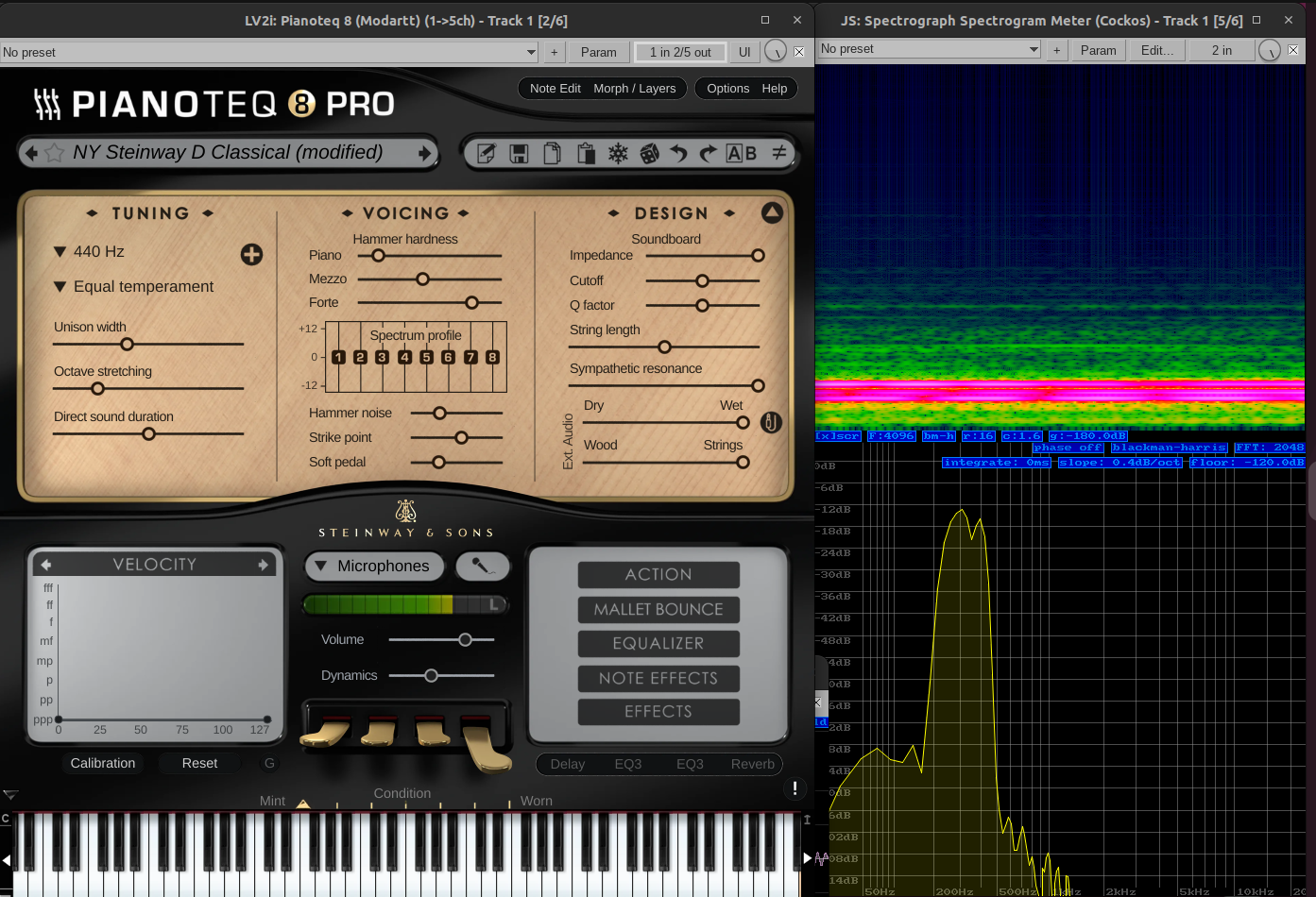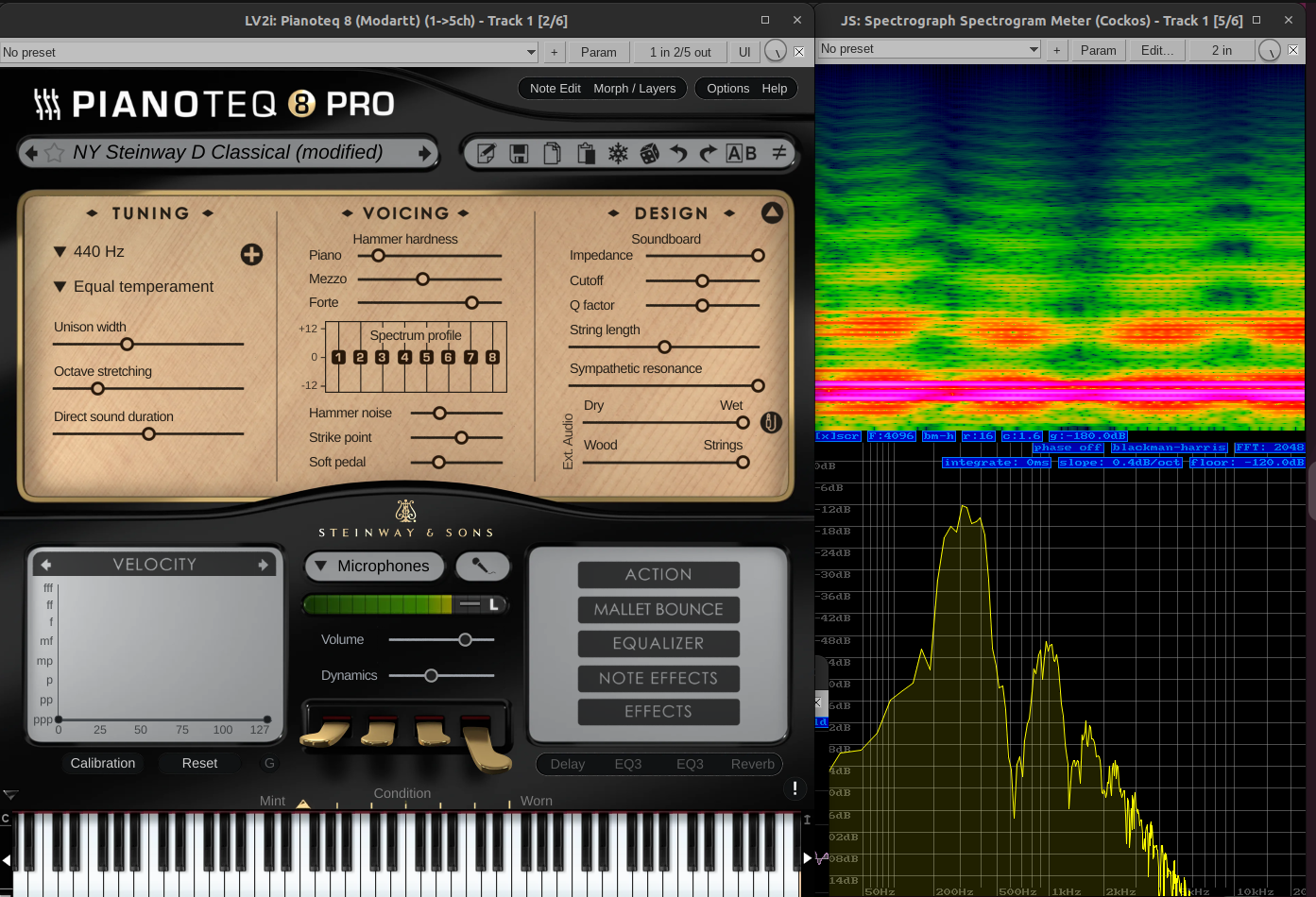scherbakov.al wrote:Interesting, but I'm a little confused. Should a limiter add harmonics in its operation?
I am not familiar with the limiter, but let me ask: what would you expect the limiter to do? I would expect it to change the volume to *prevent* additional harmonics to be added when the sound becomes to loud and risk clipping, which would *definitely* add *a lot* of harmonics.
The Fourier transform is linear, so if only volume is changed, no harmonics should be added. However, the change in volume is not constant (otherwise it would be just "lower the volume", not a limiter). The convolution theorem tells that if
* the original sound, function of t, is s(t) and
* another function (limiter causing volume change), is also function of t and called v(t)
* the multiplication of the two (which is probably what the limiter does) s(t) * v(t) has a Fourier transform which is the convolution of the Fourier transforms
So the harmonics definitely change! If the original sound had a very "clean" spectrum, i.e. exactly zero almost anywhere besides some harmonics at specific values, the most that a convolution could do is remove or change the weight of some/all harmonics. But being the original spectrum more complicated, probably not zero almost everywhere, we need to look closely at what the limiter is doing: linear ramps? Piecewise polynomials? Different spectra. Not forgetting that I'm oversimplifying by using the Fourier transform, but that assumes infinite signal, so you probably care about Wavelet transform or another variant of short-time Fourier transform....
Where do I find a list of all posts I upvoted? :(

